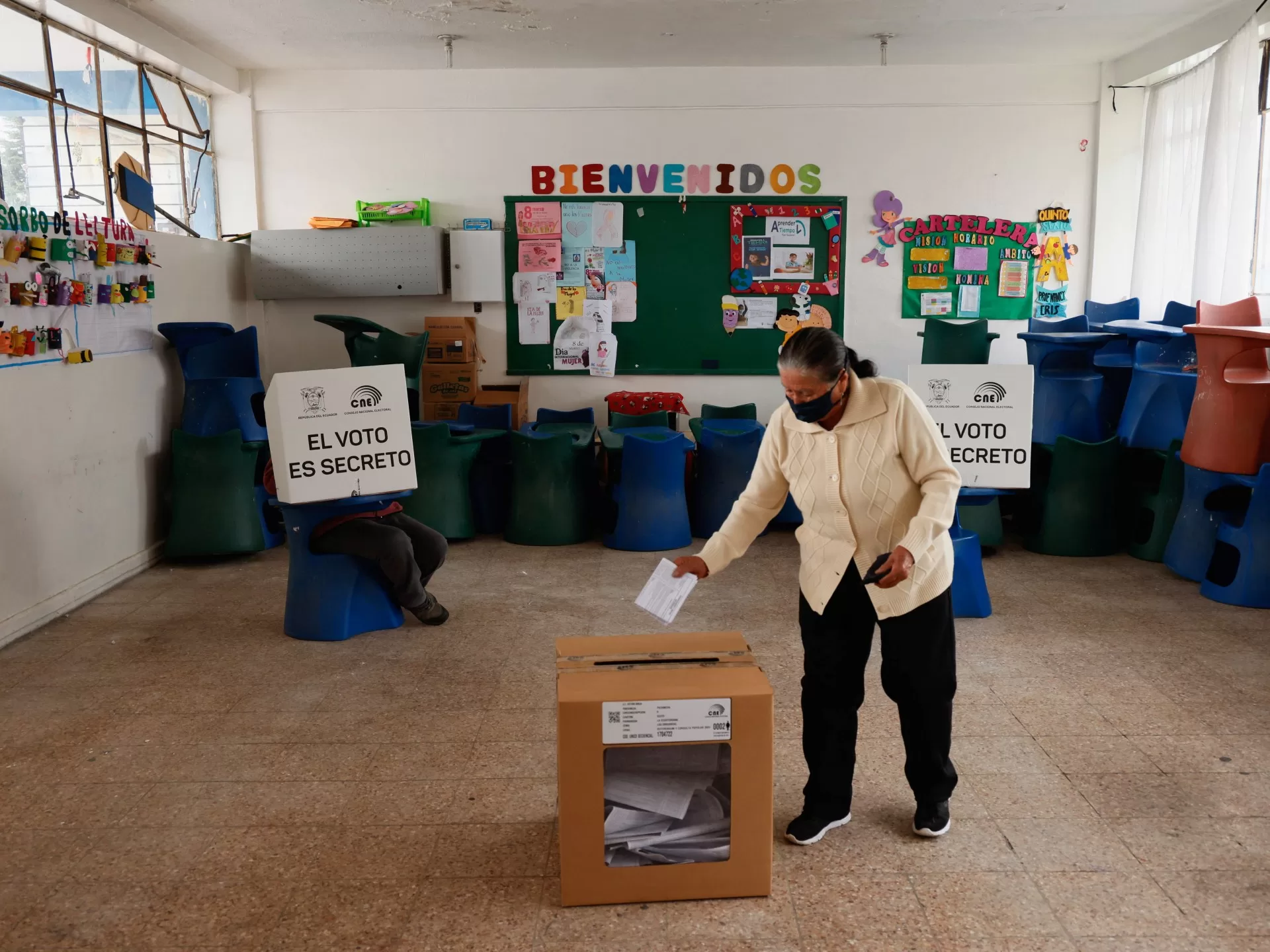The majority of 11 questions posed to voters on Sunday focus on tightening security measures.
The majority of 11 questions posed to voters on Sunday focus on tightening security measures. Proposals include deploying the army in the fight against the gangs, loosening obstacles to extradition of accused criminals and lengthening prison sentences for convicted drug traffickers.
The rising insecurity in Ecuador has been blamed on gangs with links to transnational cartels using its ports to ship drugs to the United States and Europe.
The results of Sunday’s referendum “will define the course and the state policy that we will take in order to face the challenge of fighting against violence and organized crime”, said President Daniel Noboa as voting began at the Electoral Council in the capital Quito.
Noboa declared in January a state of “internal armed conflict” with about 20 criminal groups blamed for a spasm of violence prompted by the jailbreak of a drug boss, still on the run.
Gang members kidnapped dozens of people, including police and prison guards, opened fire in a TV studio during a live broadcast, and threatened random executions.
Noboa imposed a state of emergency and deployed soldiers to retake control of the country’s prisons, which had become the hub for gang operations and a bloody battleground that has claimed the lives of more than 460 inmates in three years.
Despite these efforts, the violence has persisted, which Noboa has taken as “a sign that narcoterrorism and its allies are looking for spaces to terrorize us”.
Mayors, officials killed
Since January last year, at least a dozen politicians have been killed in Ecuador, including presidential candidate Fernando Villavicencio, who was shot last August after a campaign event.
Two mayors have been killed in the past week, making it three in less than a month.
On Sunday, the president is seeking popular backing for his plans to clamp down even harder on those responsible for such acts.
Citizens are being asked to approve an expansion of military and police powers, significantly boosting gun controls and imposing harsher penalties for “terrorism” and drug trafficking.
Noboa is also proposing changing the constitution so that Ecuadoreans wanted abroad for organised crime-related offences can be extradited.
Nearly 13.6 million of the country’s 17.7 million inhabitants are eligible to cast a “Yes” or “No” ballot over the 10 hours of voting.
The majority of the referendum questions are related to crime prevention – a priority even as Ecuador also grapples with widespread corruption, a crippling electricity shortage and a diplomatic spat with Mexico.
Last year, the country’s murder rate rose to a record 43 per 100,000 inhabitants – up from a mere six in 2018, according to official data.
Reporting from Duran, Ecuador, Al Jazeera’s Teresa Bo said most voters who spoke to Al Jazeera said they were “extremely concerned” at the security situation in the country.
“They want the government to do much more, even if that means reforming the constitution. They say they are tired of living with insecurity”.
